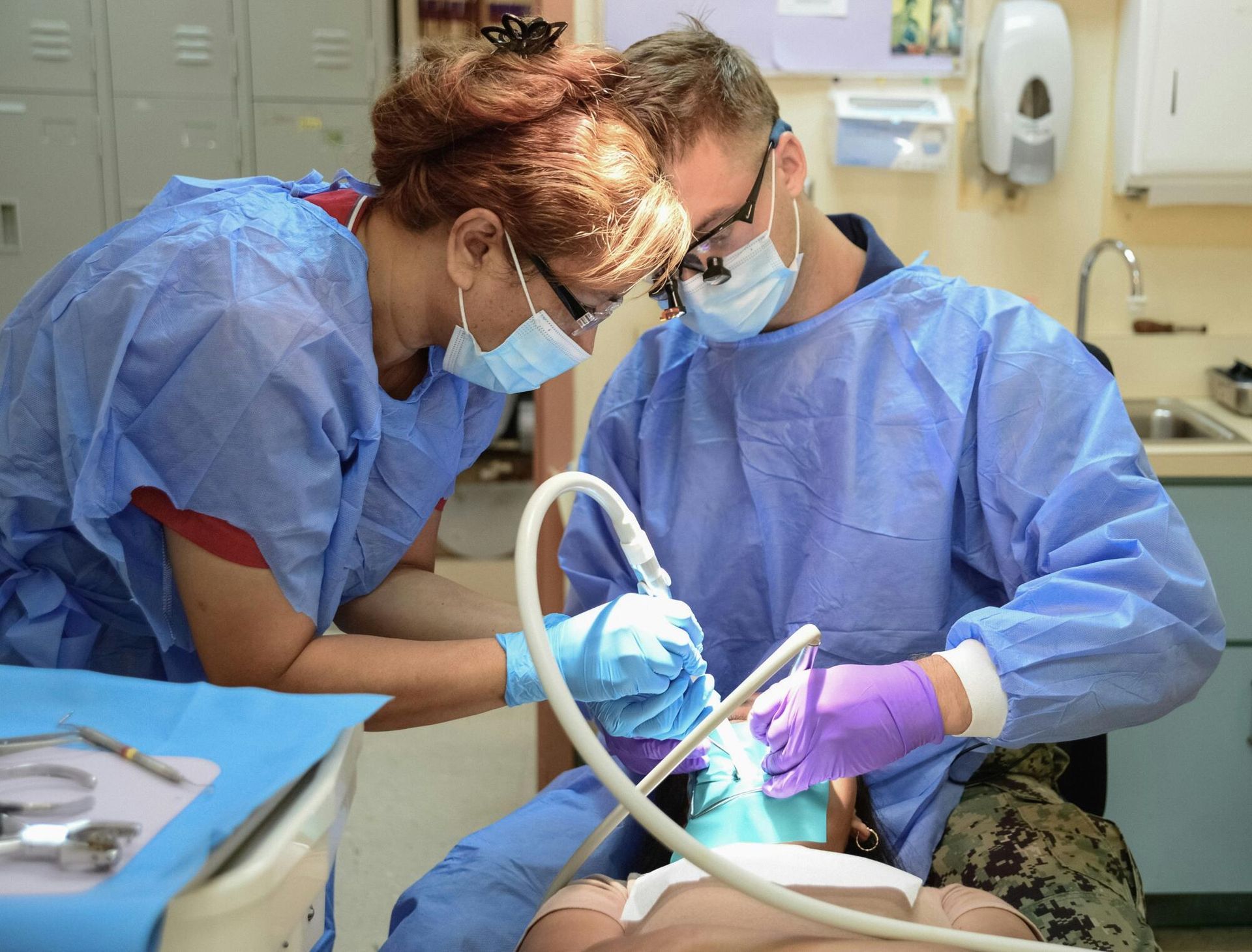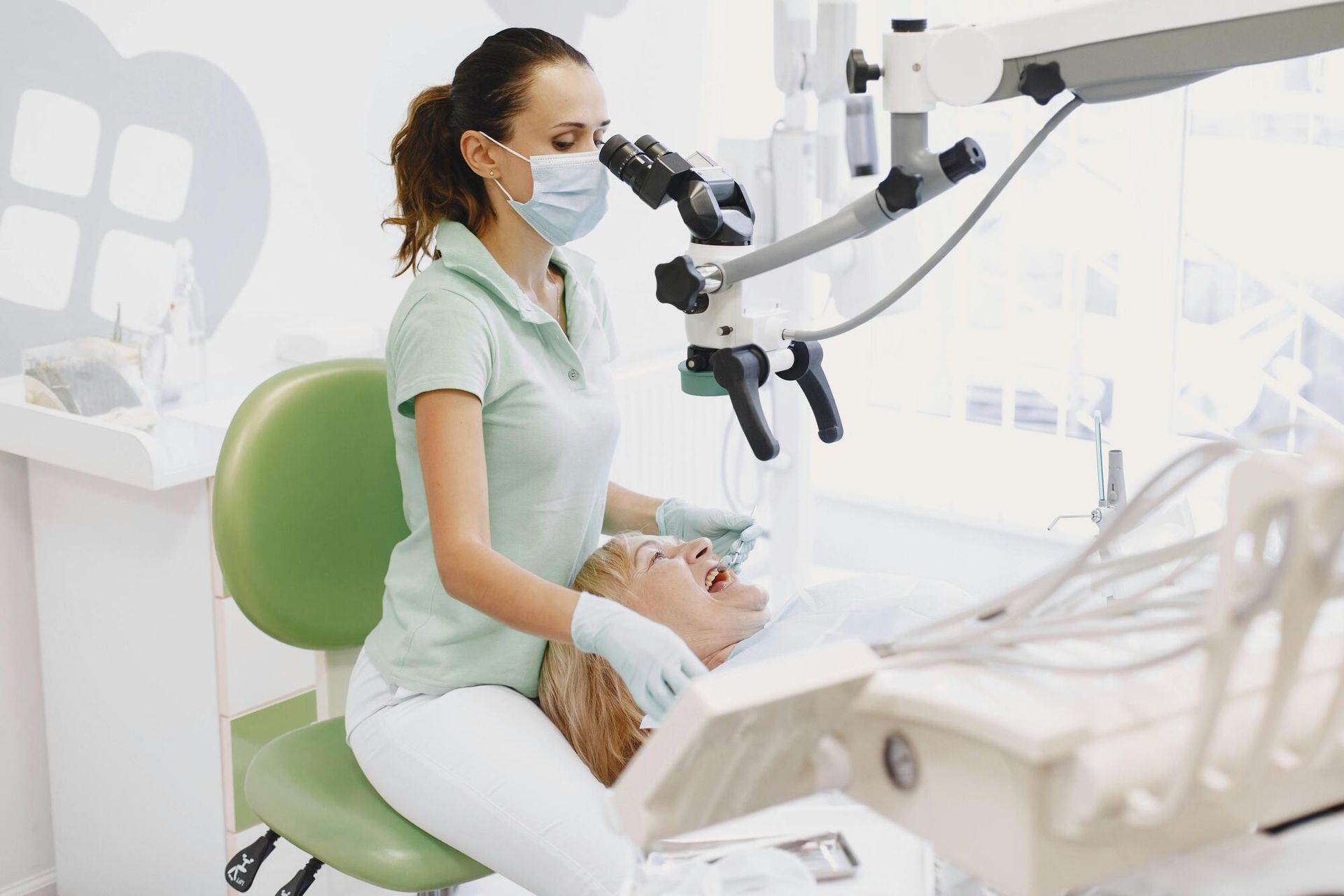Is Your Jaw Talking to You? Understanding Clicking and Popping in TMD
Approximately 5% to 12% of the American population suffers from jaw pain related to their temporomandibular joint. Severe jaw pain can debilitate a person's life, making it difficult to talk or even eat.
If you've noticed your jaw clicking and popping, those may be the first signs that you're developing a jaw problem. Even if there isn't much associated pain, the existence of a new sound or feeling could be a sign of a developing disorder.
Here's what you need to know about that popping sound in your jaw and how it relates to TMD.
What Is the Temporomandibular Joint?
The first thing to know is the temporomandibular joint (TMJ). This joint acts as the thing-like connection between your jawbone and skull, located just in front of your ear.
It allows your jaw to move up and down and side to side. You need it to talk, chew, and yawn. When the joint doesn't function properly, it can lead to a variety of uncomfortable symptoms diagnosed as TMD (temporomandibular joint disorder).
Since the TMJ is a commonly used joint, millions of people develop TMD symptoms. Early recognition can prevent long-term damage and chronic discomfort.
Common Causes of Jaw Clicking and Popping
Jaw joint discomfort and a popping sound in your jaw are some of the most common signs of TMD. However, it's important to understand what causes these noises and irritation. That way, your dentist can pursue the best treatment option.
Disc Displacement
Inside the TMJ is a small disc that helps cushion movement. If this disc becomes dislocated or moves out of its normal position, it can cause a clicking or popping sound when the jaw opens or closes.
In addition, a dislocated disc could cause the bones in the area to grind against one another. Repeated grinding can weaken the joint and cause inflammation.
Jaw Joint Discomfort From Overuse
The TMJ can get strained by habits such as:
- Gum chewing
- Nail-biting
- Teeth grinding (bruxism)
An irritated joint will lead to inflammation and popping sounds that worsen over time. Overuse stresses the muscles and ligaments, leading to fatigue and discomfort.
TMD is a common issue in people who chew primarily on one side due to tooth pain or missing teeth. They need to find a way to evenly distribute pressure throughout the day to alleviate any strain or pressure.
Arthritis
Degenerative joint diseases, such as osteoarthritis or rheumatoid arthritis, can affect the TMJ, causing the cartilage to wear down and alter jaw joint function. This may result in clicking, stiffness, and pain.
Even children and teens can get TMJ pain due to Juvenile Idiopathic Arthritis (JIA). It's an autoimmune disorder that causes joint pain throughout the body. Most patients with juvenile idiopathic arthritis (JIA) can develop arthritis of the temporomandibular joint (TMJ).
Neither condition is curable. However, you can manage the symptoms and prevent further damage.
Trauma or Injury
A blow to the jaw or head can damage the joint or surrounding muscles, resulting in TMD symptoms. Even a seemingly minor impact could misalign the jaw.
You should always seek emergency care if you've suffered a serious knock to the head, as a head injury could become serious very fast.
Structural Irregularities
Some individuals are born with irregularities in their jaw structure that may predispose them to TMD. Misaligned teeth or bite issues (malocclusion) can also contribute to uneven pressure and jaw clicking.
You'll likely notice that one side of your face is more strained than the other.
Recognizing TMD Symptoms Beyond Clicking
Although clicking and popping are often the most noticeable symptoms, TMD can manifest in other ways.Knowing these additional TMD symptoms can help guide timely diagnosis and treatment.
These include:
- Pain or tenderness in the jaw joint or surrounding muscles
- Aching facial pain
- Difficulty chewing or a sudden change in bite alignment
- Locking of the jaw joint
- Earaches or ringing in the ears
- Headaches and neck pain
When jaw joint discomfort is combined with these signs, it's important to consult a dental professional for an accurate diagnosis.
Diagnosing TMD
A dentist or oral specialist will typically begin with a comprehensive evaluation. An evaluation may include:
- A review of your medical and dental history
- A physical examination of the jaw that includes listening for sounds and checking for tenderness
- Imaging such as X-rays and CT scans to assess the condition of joints and discs
Pain under your ear and behind your jawbone could result from an ear infection, swollen lymph nodes, and more. It's important to understand the source of your discomfort or pain before you can find a solution.
Relief for TMD Pain and Treatment Options
TMD treatment varies depending on the severity and cause of the condition. These are some of the most effective strategies for managing symptoms and finding relief. Many of them include non-surgical options for those with milder cases.
Self-Care and Lifestyle Changes
People with TMJ pain can apply some treatment options at home. You can apply ice or moist heat to the affected area to reduce inflammation.Avoid extreme jaw movements, such as wide yawning or gum chewing.
Stress and jaw tension are reduced with relaxation techniques. You also want to avoid tougher foods to minimize jaw strain.
Medications
Over-the-counter pain relievers like ibuprofen or acetaminophen can help manage mild discomfort. More severe cases will require muscle relaxants or anti-inflammation drugs prescribed by a doctor or dentist.
These will often require an appointment, as you cannot get most of the stronger options without a prescription.
Dental Splints or Night Guards
Custom-fitted oral appliances can help reduce teeth grinding and keep the jaw in a proper position. These devices are especially useful for patients with bruxism-related TMD.
Dental splints are either removable or fixed to support the jaw joints and protect the teeth. You can wear night guards overnight to prevent any grinding in your sleep.
Physical Therapy
Some people may develop TMD due to issues with their jaw mobility or strength. Exercises and techniques guided by a physical therapist can help improve that mobility and reduce overall pain.
Stress Management
Many people are unaware of how much stress and anxiety can impact their jaw. These mental health issues can contribute to jaw clenching and muscle tension.
Behavioral therapies and stress-reduction techniques can be beneficial in treating them. The same goes for good posture, which is often affected by mood.
Dental Corrections
If TMD results from bite misalignment, orthodontic treatment or dental restorations may help realign the jaw. The problem will not resolve itself on its own with the use of pain killers, ice, or heat.
They may treat a slight misalignment with invisible aligners. Otherwise, they might need to apply braces.
Surgical Options
Surgery is usually a last resort when conservative treatments fail.Arthroscopy or open joint surgery might be recommended for severe structural issues.
As always, follow your dentist's instructions when it comes to treating your condition. They'll often inform you of limitations or warning signs when recovering after surgery.
Preventing Future Flare-Ups
Not all causes of jaw clicking or popping are preventable. Some of them are due to genetic abnormalities or injuries, which may require surgical intervention. However, certain habits and practices can lower your risk of developing TMD symptoms outside of those specific situations.
For one, practice good posture, especially when using a phone or computer. Avoid chewing on:
- Pens
- Ice
- Hard nuts
- Non-food objects
Stay aware of stress levels and practice mindfulness. This is especially important if you tend to grind your teeth or clench your jaw.
Wear protective headgear during contact sports to prevent jaw injuries.
Visit your dentist regularly for early detection and preventative care. They will notice if you've been grinding your teeth. If they suspect TMD, they may take X-rays of your jaw to diagnose and treat the issue.
When to See a Dental Professional
Occasional jaw noises that aren't accompanied by pain or dysfunction may not require treatment. At most, you may need to rest your jaw or apply some ice for a bit. However, you should consult a dental care provider if you experience:
- Persistent clicking or popping
- Jaw pain or tenderness
- Limited jaw movement
- Headaches or earaches associated with jaw movement
Prompt evaluation can help manage symptoms early and prevent further joint damage.A TMJ specialist and an orthodontist can both diagnose and treat the condition. You may require the services of an oral and maxillofacial surgeon for surgical interventions.
Most TMJ pain is related to the muscles, particularly those used for chewing. Your dentist should examine your bite and may measure your muscle activity to assess your bite. Patients may find that adjusting their bite can reduce migraines and pain in the neck, back, and shoulders.
Don't Ignore TMD Symptoms
Jaw clicking and popping is only one symptom to keep an eye out for. TMD can present itself in many ways, including ear pain, neck pain, and difficulty talking or chewing. Ignoring any of those problems for too long could make them worse and change the overall treatment plan for your condition.
Dental Care Burke provides full treatment plans for patients in the Burke, VA area. Our office services include general dental needs, cosmetic dentistry, and dental implants. Reach out today to learn more and schedule your first appointment.












